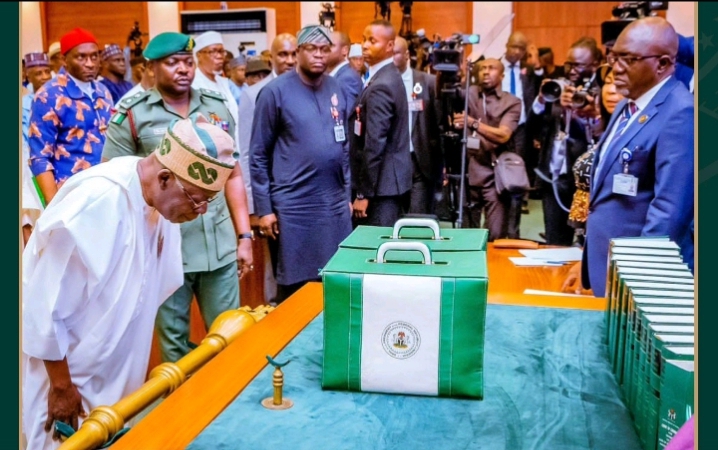A staggering N6.93 trillion worth of 11,122 questionable projects have been secretly inserted into Nigeria’s 2025 Federal Government Budget by the National Assembly, raising alarms about fiscal transparency and public fund management. The revelation, uncovered by Factsphere through an in-depth analysis of findings from civic-tech organization BudgIT, exposes a troubling pattern of unjustified spending, political maneuvering, and budget manipulation.

Factsphere’s independent review of BudgIT’s report shows that these inserted projects make up 12.61% of the N54.99 trillion federal budget signed into law by President Bola Ahmed Tinubu. The flagged insertions are described as irregular, politically influenced, and lacking clear justification, raising serious concerns over misuse of taxpayer funds.
Among the most alarming insertions are 238 projects, each worth N5 billion or more, summing up to N2.29 trillion, with no clear explanation. Additionally, 984 projects valued at N1.71 trillion, along with 1,119 projects costing between N500 million and N1 billion, were added indiscriminately. A total of 3,573 projects worth N653.19 billion were assigned directly to federal constituencies, while 1,972 projects valued at N444.04 billion were allocated to senatorial districts. There are also 1,477 streetlight projects costing N393.29 billion, 538 boreholes totaling N114.53 billion, and 2,122 ICT projects worth N505.79 billion inserted across various government agencies. An additional N6.74 billion was earmarked for the empowerment of traditional rulers, prompting criticism over non-developmental spending.
The budget inflation disproportionately affects key ministries, diverting funds away from essential national development. The Ministry of Agriculture alone received 39% of all insertions, swelling its capital allocation from N242.5 billion to N1.95 trillion. The Ministry of Science and Technology and Budget and Economic Planning also saw their budgets inflated to N994.98 billion and N1.1 trillion, respectively.
Factsphere’s review further highlights troubling cases where irrelevant government agencies were saddled with off-mandate projects. For example, the Federal Cooperative College, Oji River was allocated N3 billion for utility vehicles, N1.5 billion for rural electrification in Rivers State, and N1 billion for solar streetlights in Enugu State—none of which align with its statutory role. Similarly, the Nigerian Building and Road Research Institute was assigned projects clearly outside its jurisdiction.
Despite the disturbing details, the Presidency has remained silent on BudgIT’s findings. This silence fuels doubts about the administration’s commitment to transparency, accountability, and curbing legislative excesses.
Factsphere is calling for urgent reforms and tighter budget oversight mechanisms to stop further financial leakages that threaten national progress. As public demand for fiscal responsibility grows, Nigerians await concrete steps from the government to ensure the nation’s wealth serves the people—not political interests.